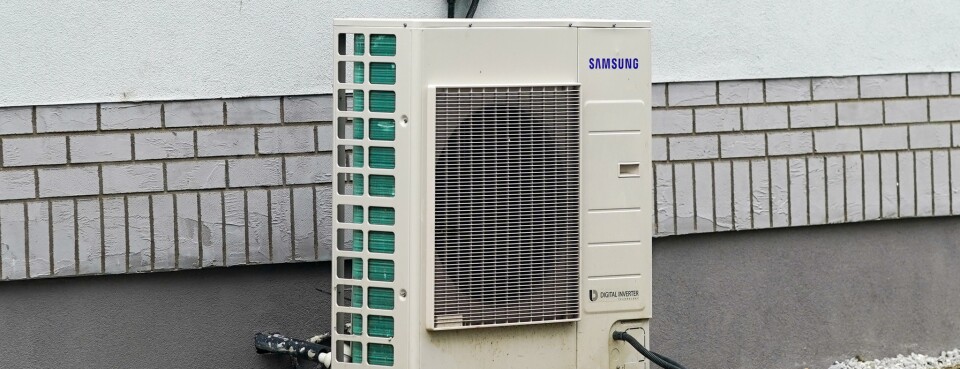
The Biden administration’s push to use emergency wartime powers and dole out billions in energy efficiency rebates to back electric heat pumps has spurred protests from natural gas utilities defending their turf.
The administration’s goal of installing 500,000 electric-powered heat pumps—and growing state requirements to electrify buildings—ignores the efficiency and cost benefits of gas-fired heating systems, said Rick Murphy, managing director of energy markets for the American Gas Association.
“At the end of the day, you’ll really need all the solutions on the table,” Murphy said.
That view clashes with the administration and energy efficiency advocates who champion electric heat pumps—in tandem with other home improvements like insulation and windows—for their ability to decarbonize homes while lowering energy bills.
The AGA, which represents more than 200 gas companies serving 73 million customers, is politically influential on energy policy and has pushed back on several recent actions with which it disagrees.
This year, the group opposed US energy regulators’ move to scrutinize interstate pipeline projects and filed a brief in the US Court of Appeals for the Ninth Circuit against the city of Berkeley, Calif.'s ban on natural gas service in new buildings. It also branded as “impractical, unscientific and expensive” a White House move this week to require fossil-free federal buildings by 2030.
Transferring Heat
Heat pumps use electricity to transfer heat from a cool space to a warm space, making the cool space cooler and the warm space warmer.
Electric heat can produce more energy than consumed by a factor of three, said Tony Bouza, technology manager in the department’s Building Technologies Office. Furnaces that produce heat from burning natural gas or oil can only produce as much energy as put in.
This year, sales of residential heat pumps could overtake those of natural gas furnaces for the first time—a positive trend that shows high consumer demand, said Ashley Armstrong, senior adviser in the Energy Department’s Office of Energy Efficiency and Renewable Energy.
The agency is also working with manufacturing companies and others to commercialize electric heat pumps that operate well in cold climates, as heat pumps can struggle to draw as much heat from temperatures that dip below 5 degrees Fahrenheit.
The department has worked in recent years to commercialize a gas heat pump—but such fuel-powered pumps can only heat homes, not cool them, Bouza said.
“So consumers have options, but we believe the air-source heat pump overall is a more viable solution for most consumers,” Bouza said.
Nearly 3.4 million heat pumps were shipped in the first nine months of 2022, an increase of nearly 11% from the previous nine-month period, according to the recent data published by the Air-Conditioning, Heating, and Refrigeration Institute. The trade association representing manufacturers estimated more than 3,000 gas heat pumps were installed.
Jumping Aboard
Policymakers have jumped on board. Last month, Vice President Kamala Harris visited Boston to trumpet the value of heat pumps in combating high utility bills.
More than a dozen states and about 100 US cities have begun to shift policies to encourage or require electrification of homes, workplaces, schools, and government buildings, the Rocky Mountain Institute found in a study last month. In November, Washington state required all new homes to use heat pumps in first-in-the-nation rules.
Sen. Martin Heinrich (D-N.M.), a member of the Senate Energy and Natural Resources Committee, said at a recent forum he has been retrofitting his own home to move away from gas appliances.
“All these things give people the tools to be able to actually take action on climate change in their own lives,” Heinrich said.
‘Glaring and Unbalanced’
But the gas industry argued the shift to electrify all homes isn’t realistic.
The association has criticized the International Energy Agency for excluding gas heat pumps from a report last month and accused the Paris-based global organization for overstating efficiency gains from electric heat pumps.
“It is a glaring and unbalanced oversight,” Karen A. Harbert, AGA’s president and CEO, wrote on Dec. 2 to Fatih Birol, IAEA’s executive director. The IEA didn’t return a request for comment this week.
The AGA also pressed the administration to include gas heat pumps as it allocates $250 million in funding to spur heat pump production under the Defense Production Act.
Murphy, the AGA’s managing director, said the gas system can deliver much more energy more efficiently, and the electric grid faces delays in building new long-haul power lines.
Policymakers don’t “comprehend the magnitude of a build-out that would be required, if we go down this path of electrifying everything,” Murphy said.
Up to Consumers
Ultimately, consumers will decide. They will be armed with some $9 billion in rebates allocated to states in coming months from the Inflation Reduction Act climate and tax law (Public Law 117-169).
The scope of benefits from electric heat pumps depend on factors like climate, housing stock, existing source of heating fuel, and the prices of electricity and gas, said Steve Nadel, executive director of the American Council for an Energy-Efficient Economy.
The group found this year that electric heat pumps will be cheaper overall except in very cold climates.
“The federal incentives will help all of these people—but as you get to a colder climate, and you have gas, they become more essential,” Nadel said.
"electric" - Google News
December 08, 2022 at 06:37PM
https://ift.tt/FJSuBop
Heat Pump Push Sparks Gas-Electric Battle Over Home Efficiency - Bloomberg Law
"electric" - Google News
https://ift.tt/HJPfOmj
https://ift.tt/kGrvTmx
Bagikan Berita Ini














0 Response to "Heat Pump Push Sparks Gas-Electric Battle Over Home Efficiency - Bloomberg Law"
Post a Comment